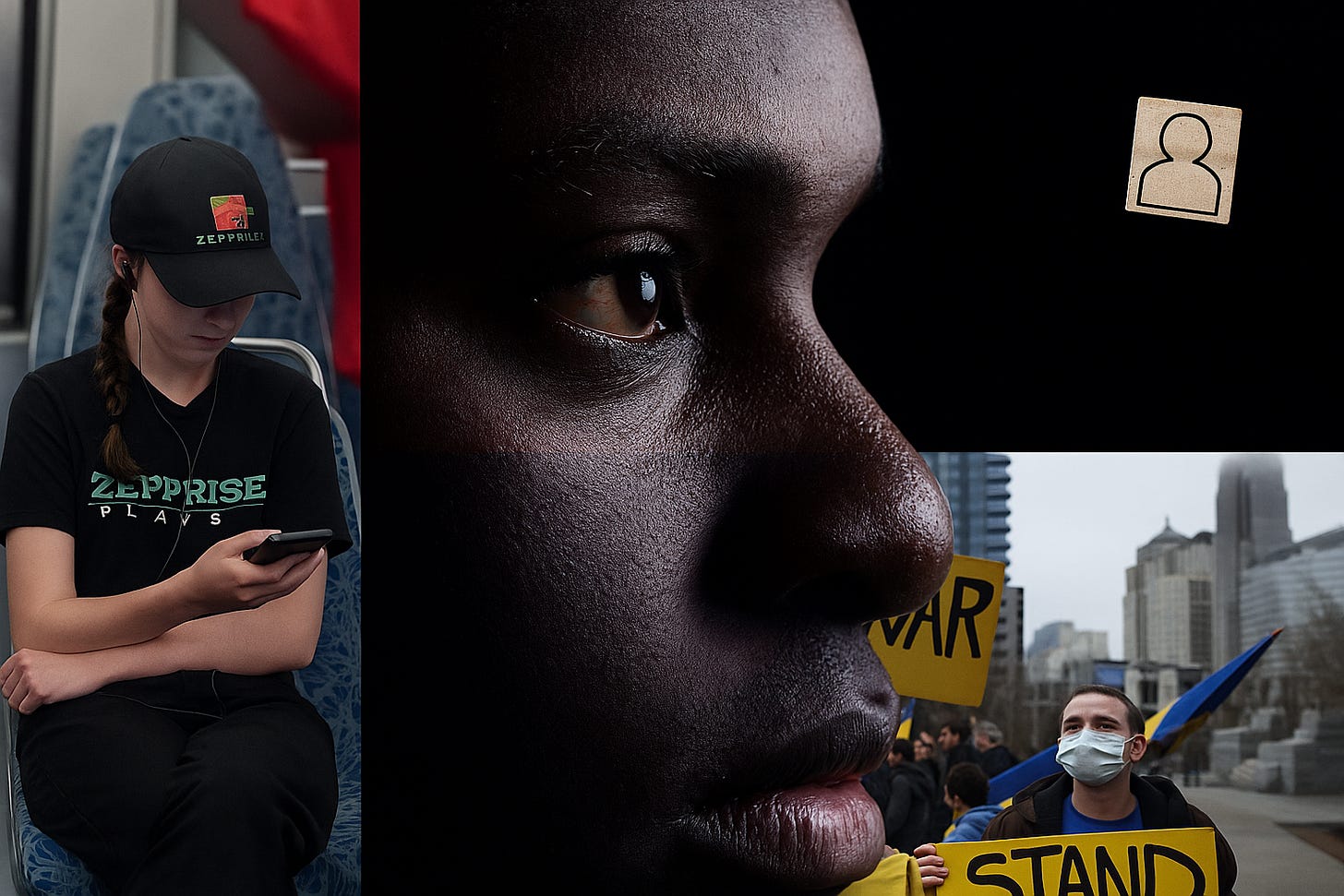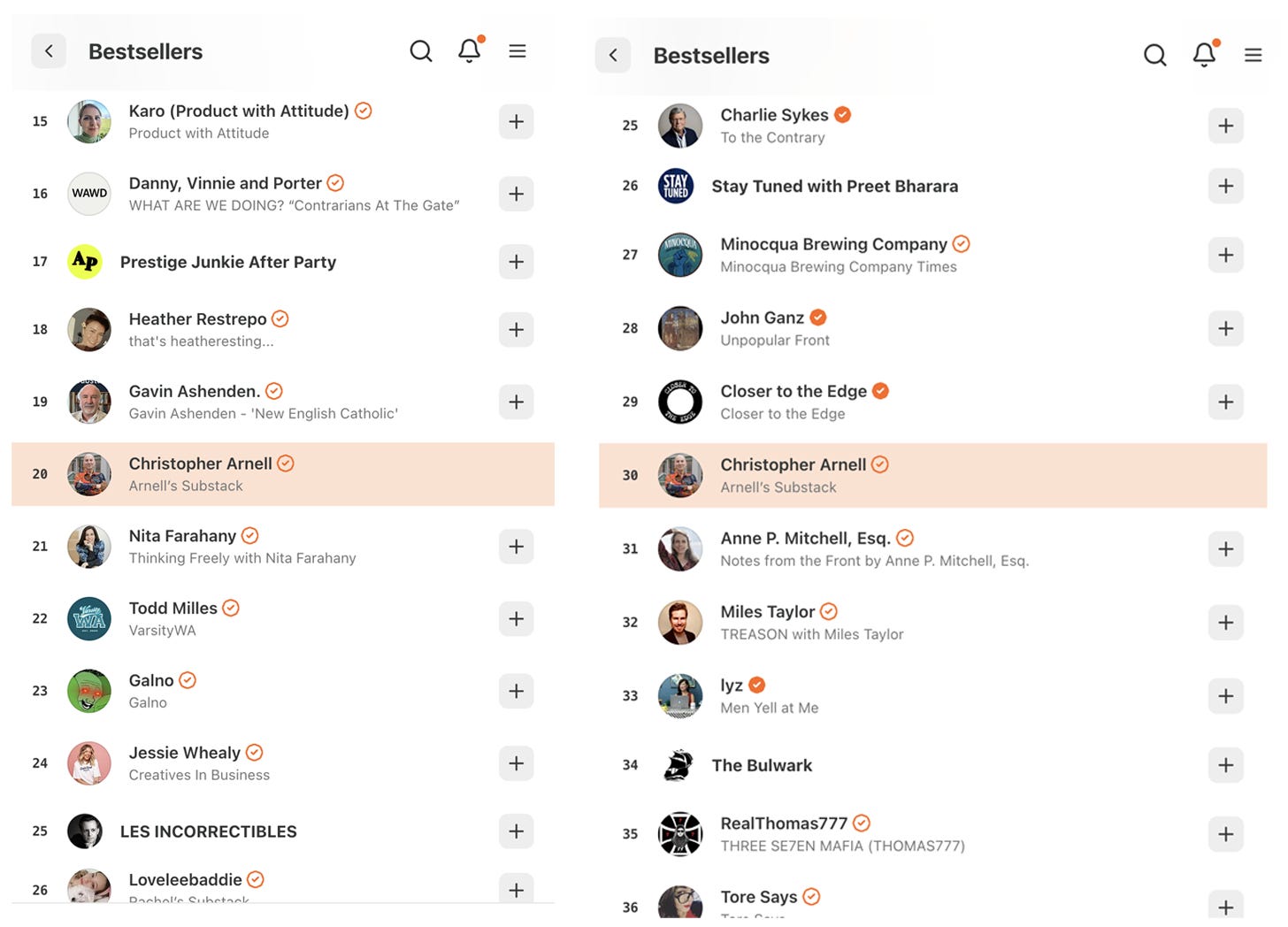What Do Ukraine, Karmelo Anthony, and Jeff Metcalf Have in Common?
This is why I’m back on the bestseller list. Not because I play it safe but because I won’t shut up.
Something happened this week that makes what follows even more critical.
We crossed 100 paid subscribers.
That alone would be worth celebrating. But then something else happened.
As of today, this newsletter is:
#20 on the Bestsellers List
#30 on Substack’s Rising List in U.S. Politics
That’s not a small thing.
I don’t have corporate backing. I don’t have nonprofit funding.
There’s no team, no strategy department, no ad spend.
There’s just the work. And you.
The reason this newsletter has made it onto both lists is because people like you decided to support it, not just by reading, but by subscribing, sharing, restacking, and speaking up.
I’m especially grateful to those of you who’ve stepped up as paid subscribers.
You’re the ones who’ve kept this going when it could’ve easily disappeared.
If you’ve already subscribed, thank you. You’ve made this possible.
If you’ve been sitting on the fence, wondering if it makes a difference, it does.
Visibility matters. Support matters even more.
Here’s the link:
https://mrchr.is/help
And if you’re not in a position to subscribe right now, you can still help in big ways:
Share this post across every platform
Restack it on Substack
Please send it to people who care about truth over spin
The more this work is seen, the harder it is to ignore.
Let’s Connect the Dots on These Three Articles
The media loves to cry for Ukraine. Unless the victim is inconvenient, that’s what happened when Iryna Zarutska, a Ukrainian refugee and mother, was brutally stabbed to death on a Charlotte train by a violent Black homeless man. Her story barely made a ripple. The usual voices fell silent. There were no marches. No hashtags. No murals. Why? Because it didn't fit the narrative. Because in today’s moral marketplace, justice is conditional.
And that same selective outrage showed up again when Karmelo Anthony stabbed another runner at a track meet. The incident was caught on video. The victim was unarmed. And yet, donations flooded in. Not for the wounded White athlete, but for the Black attacker. Excuses poured out from the usual corners. Mental health. Systemic pressure. Somehow, Karmelo was framed as the real victim. We’ve reached a point where accountability isn’t just avoided. It’s rejected outright, especially when race politics are involved.
Which brings us to Jeff Metcalf, the father of the boy Karmelo killed. Instead of lashing out, he forgave his son’s killer. Publicly. Sincerely. And for that, he was punished. He was excluded from press conferences. Slandered online and treated as a pariah. Not because he was wrong, but because he disrupted the approved script. In a world driven by outrage, forgiveness is now seen as betrayal.
Three tragedies. Three distortions. One undeniable pattern.
When truth depends on the race of the victim… when killers get GoFundMes and grieving parents get canceled… when speaking plainly makes you unemployable, you’re not living in a just society. You’re living in a managed narrative.
And the only way to fight that narrative is to tell the truth anyway.
Read them. Share them. Use them.
This newsletter doesn’t exist to fit in. It exists to tell the truth.
And I’m only able to keep doing that because enough of you believe it still matters.
We’re just getting started.
Best regards,
Chris
If This Hit a Nerve, Do Something About It
I don’t run ads. I don’t hide my work behind paywalls. I write for everyone, especially the people no one else dares to speak for.
But telling the truth comes at a cost. And we’re up against a system that has money, media, and momentum. What we have is honesty, grit, and readers like you.
If you believe this work matters, if you want it to keep going, this is your moment to step up:
Become a Paid Subscriber: https://mrchr.is/help
Join The Resistance Core (Founding Member): https://mrchr.is/resist
Buy Me a Coffee: https://mrchr.is/give
Give a Gift Subscription https://mrchrisarnell.com/gift
Every contribution counts. But if you’re in a position to give more, do it. That’s how we build something that lasts. That’s how we fight back.
Because the truth won’t survive unless we’re willing to fund it. And if we don’t speak it, no one will.



